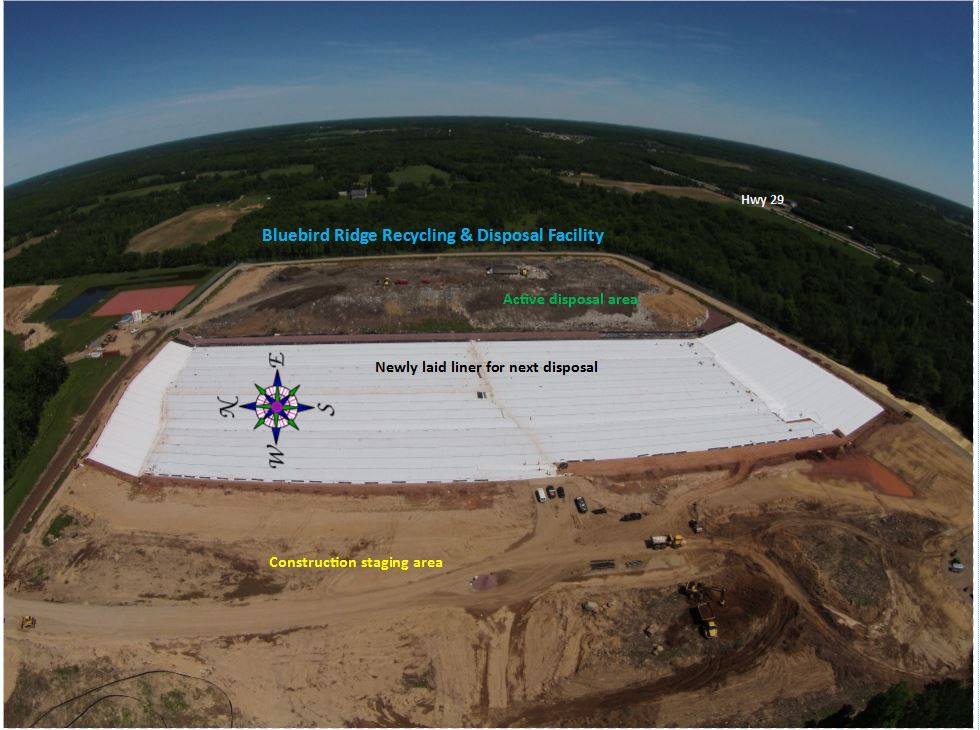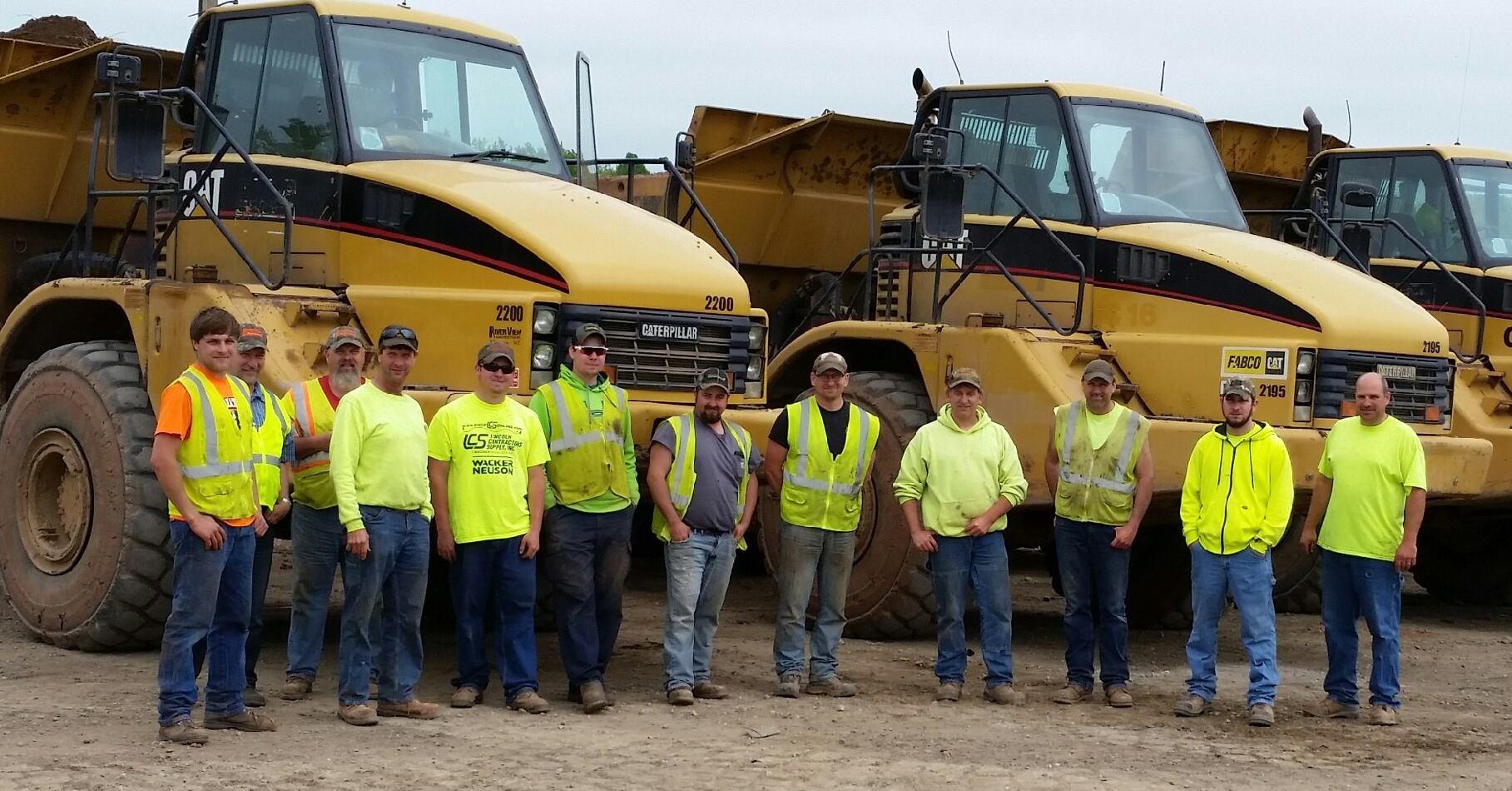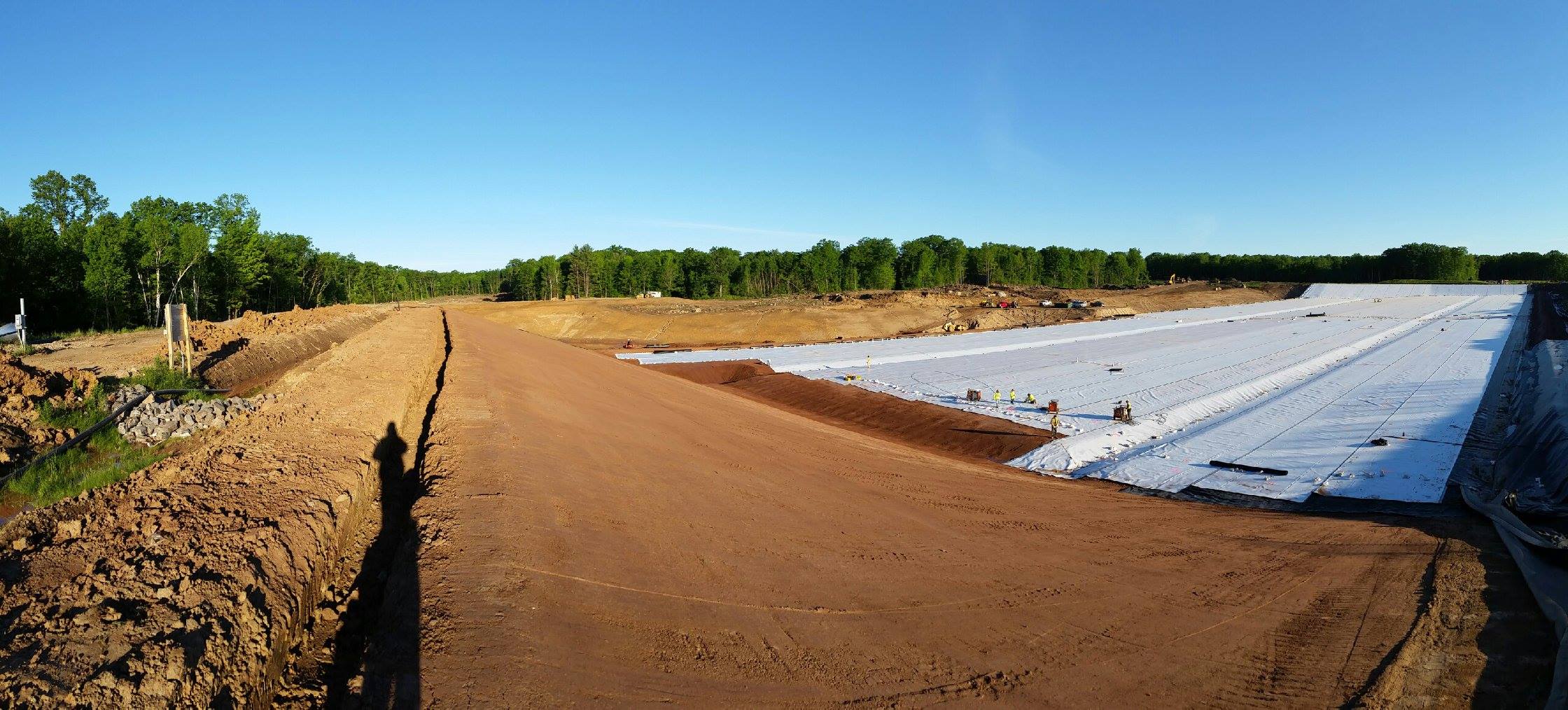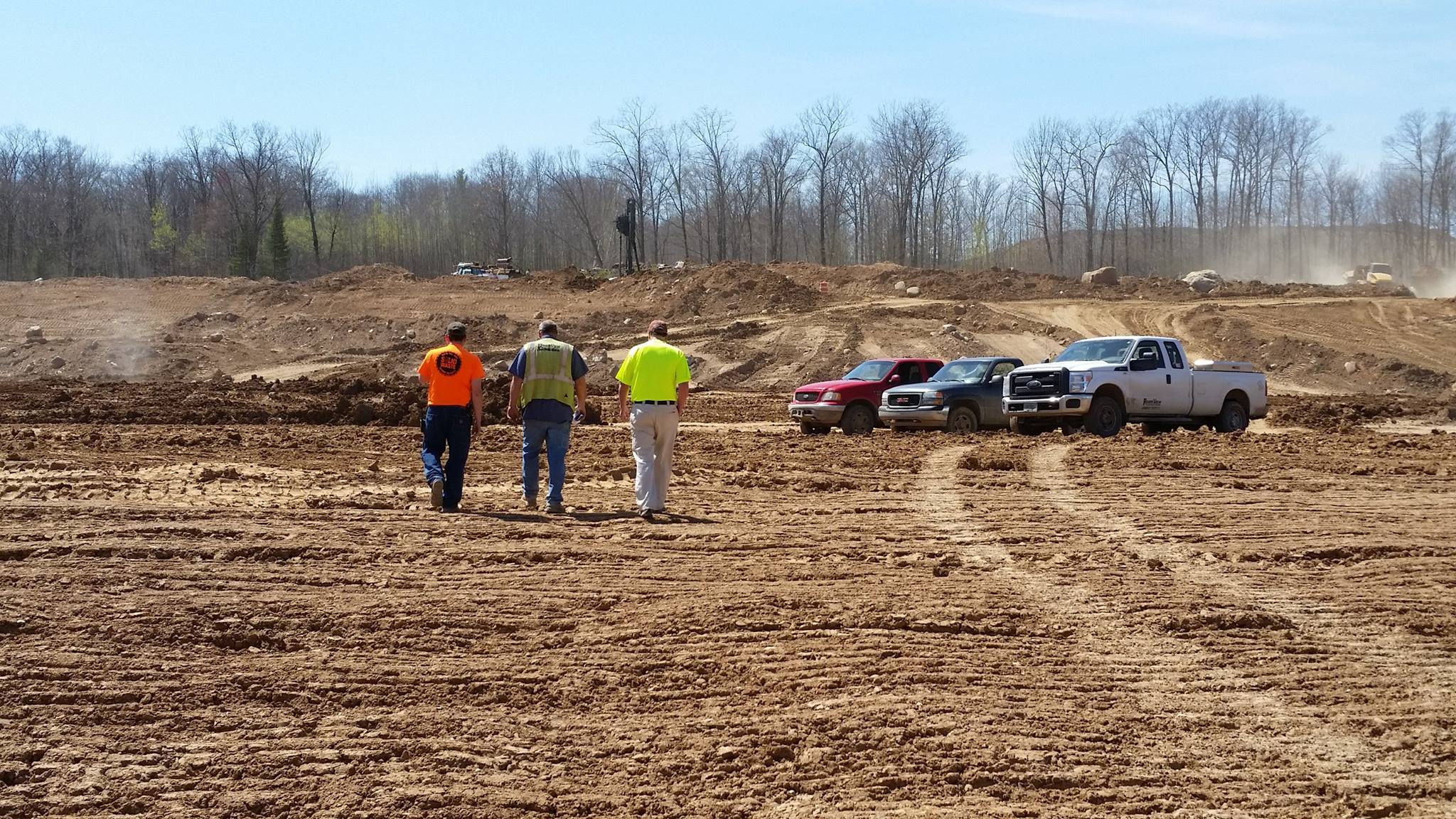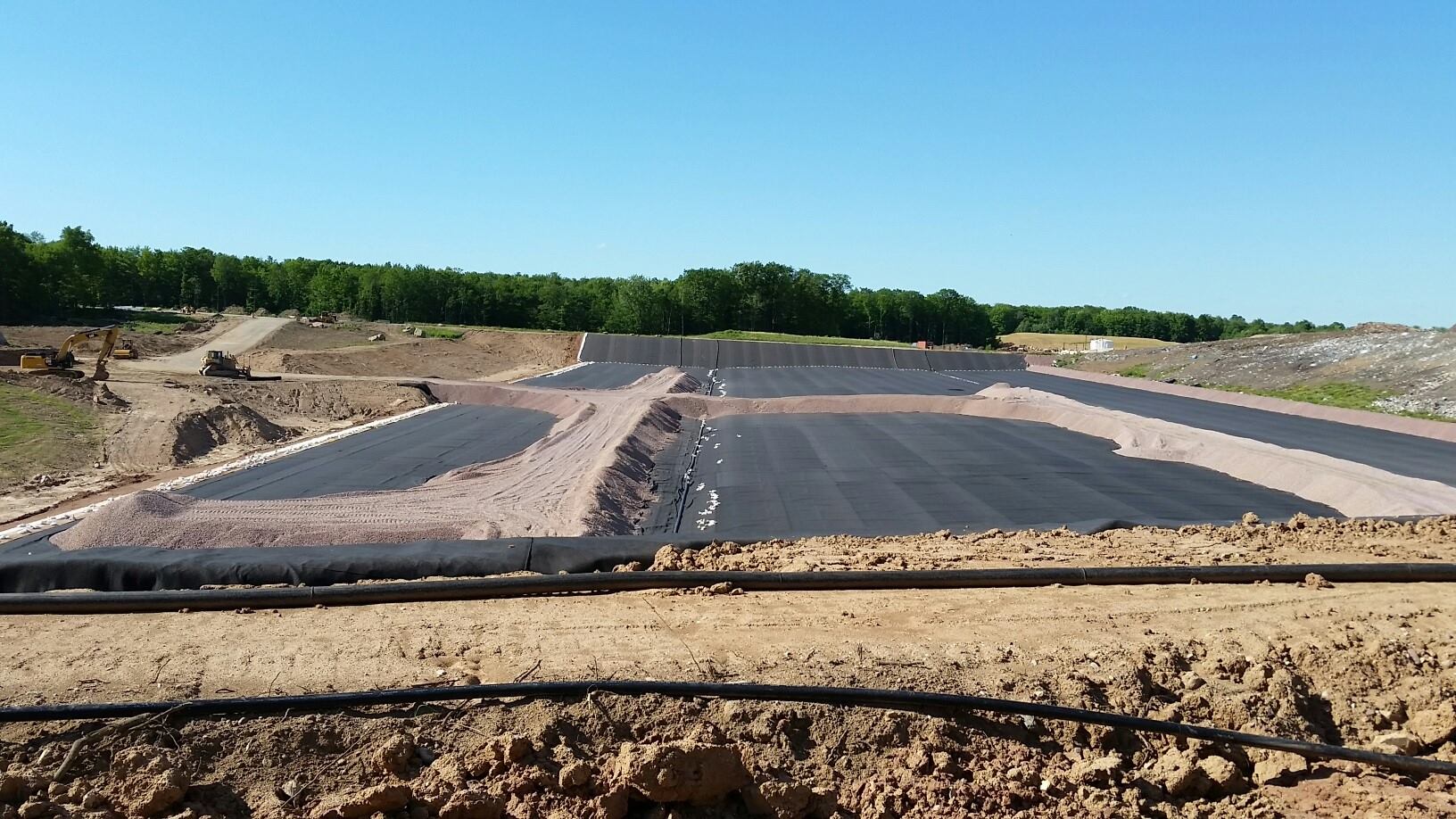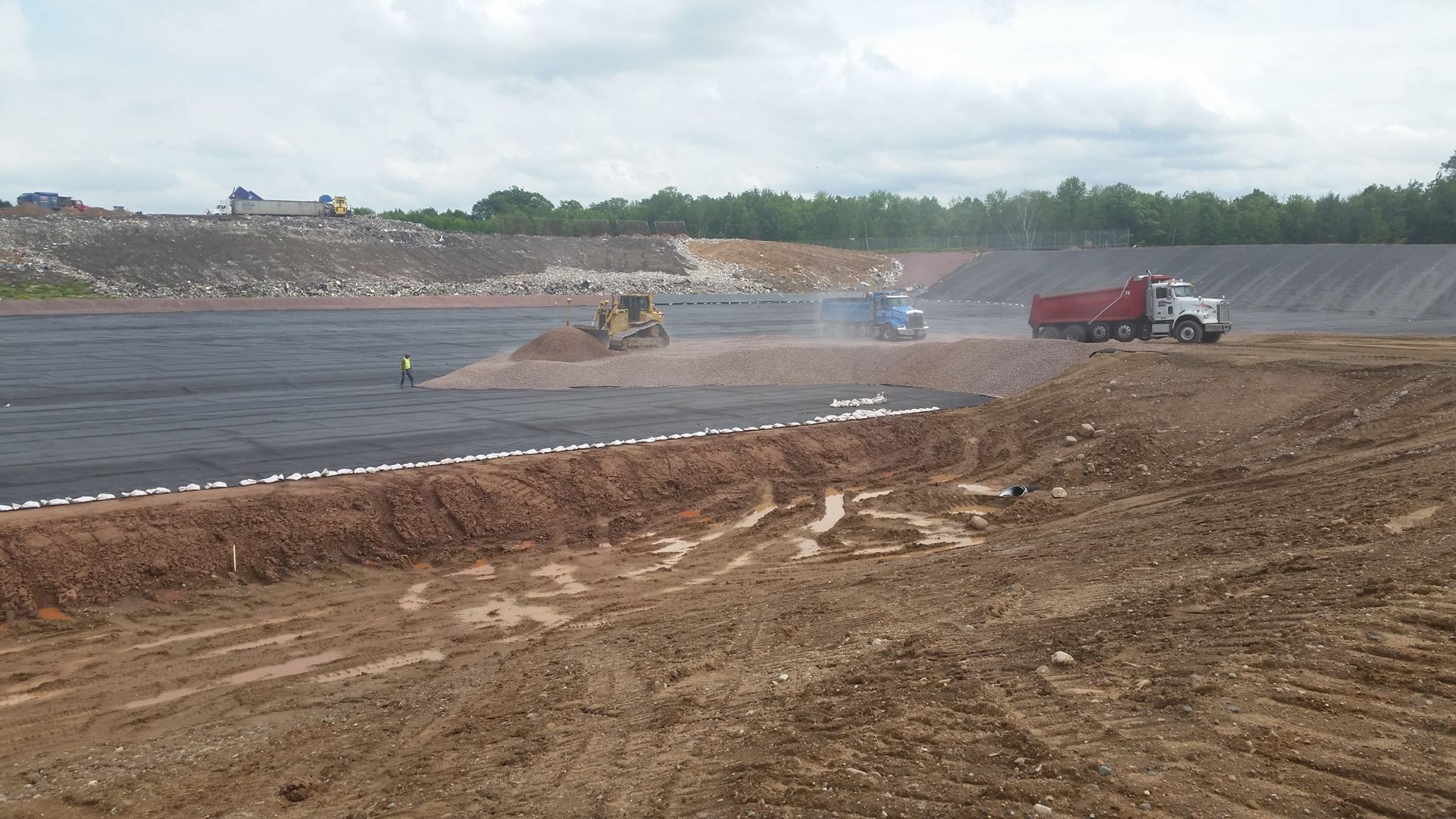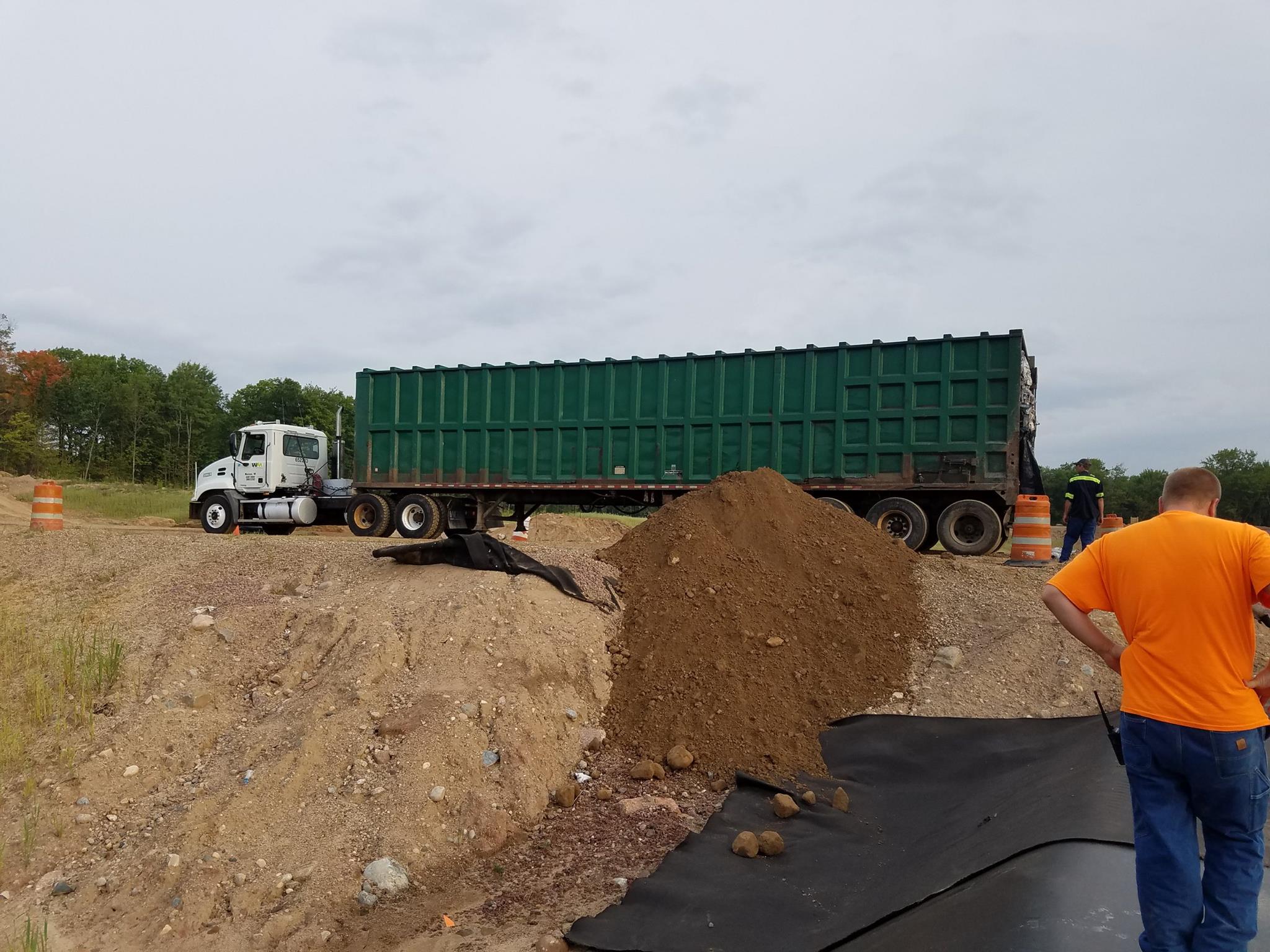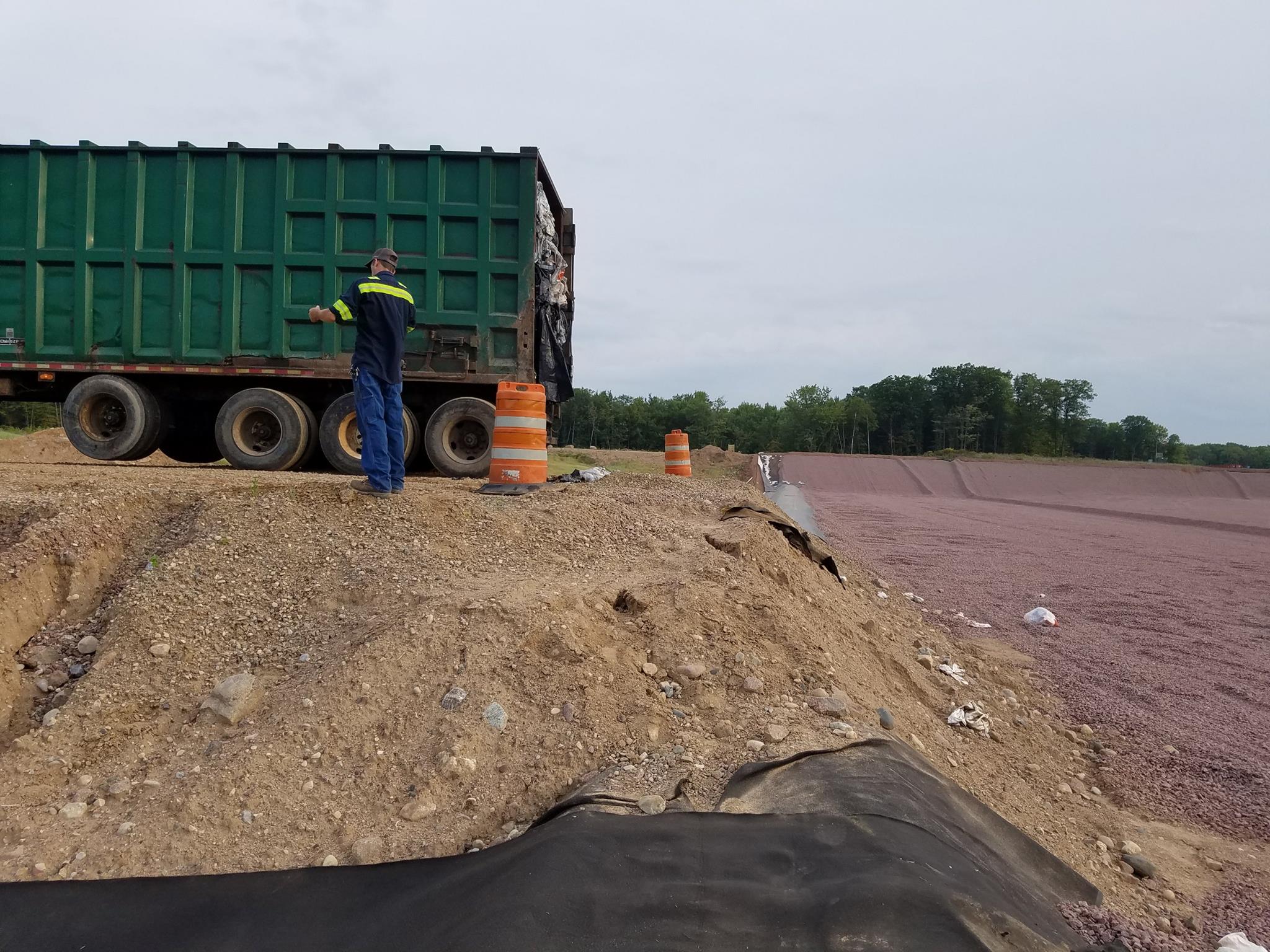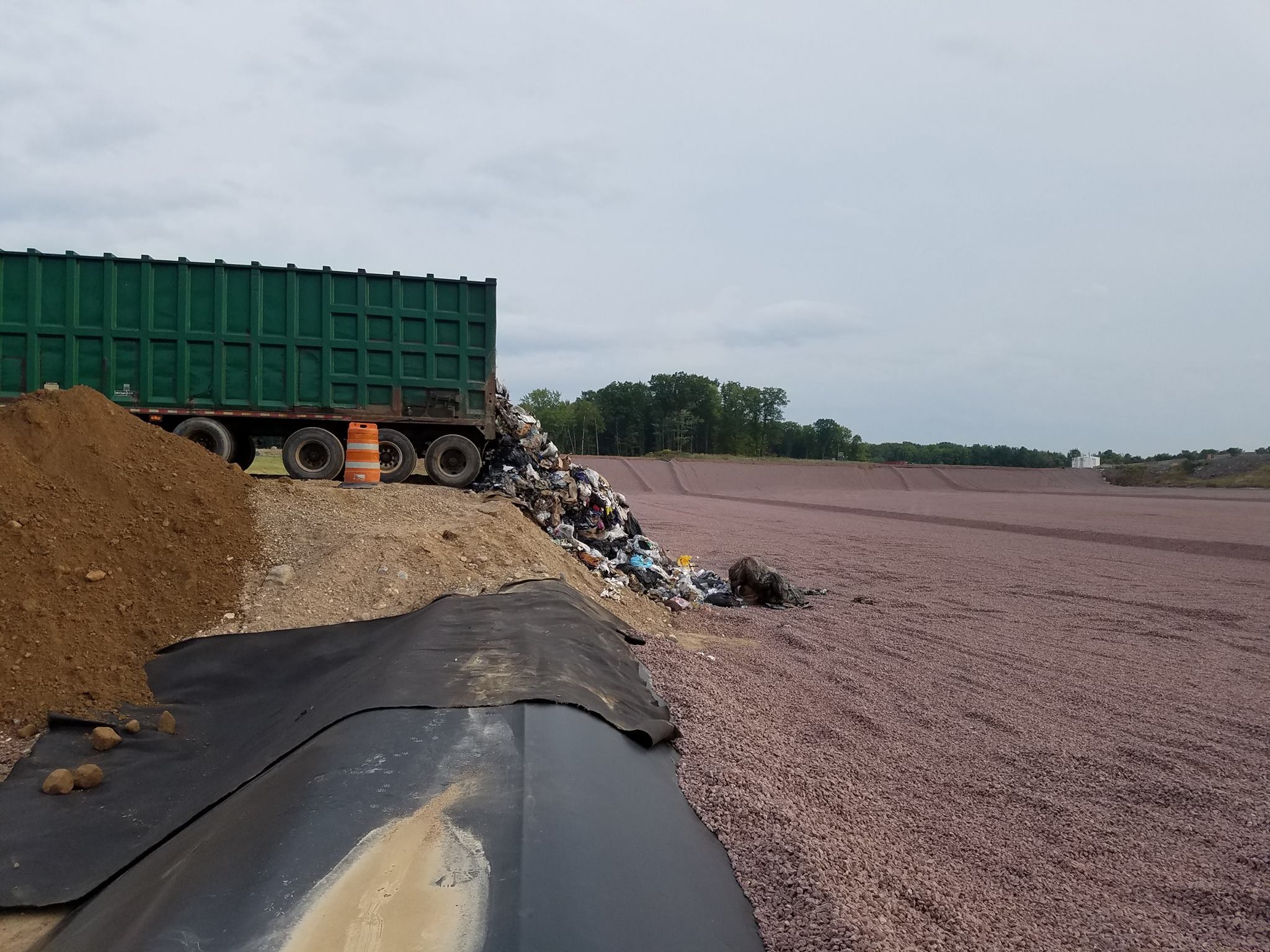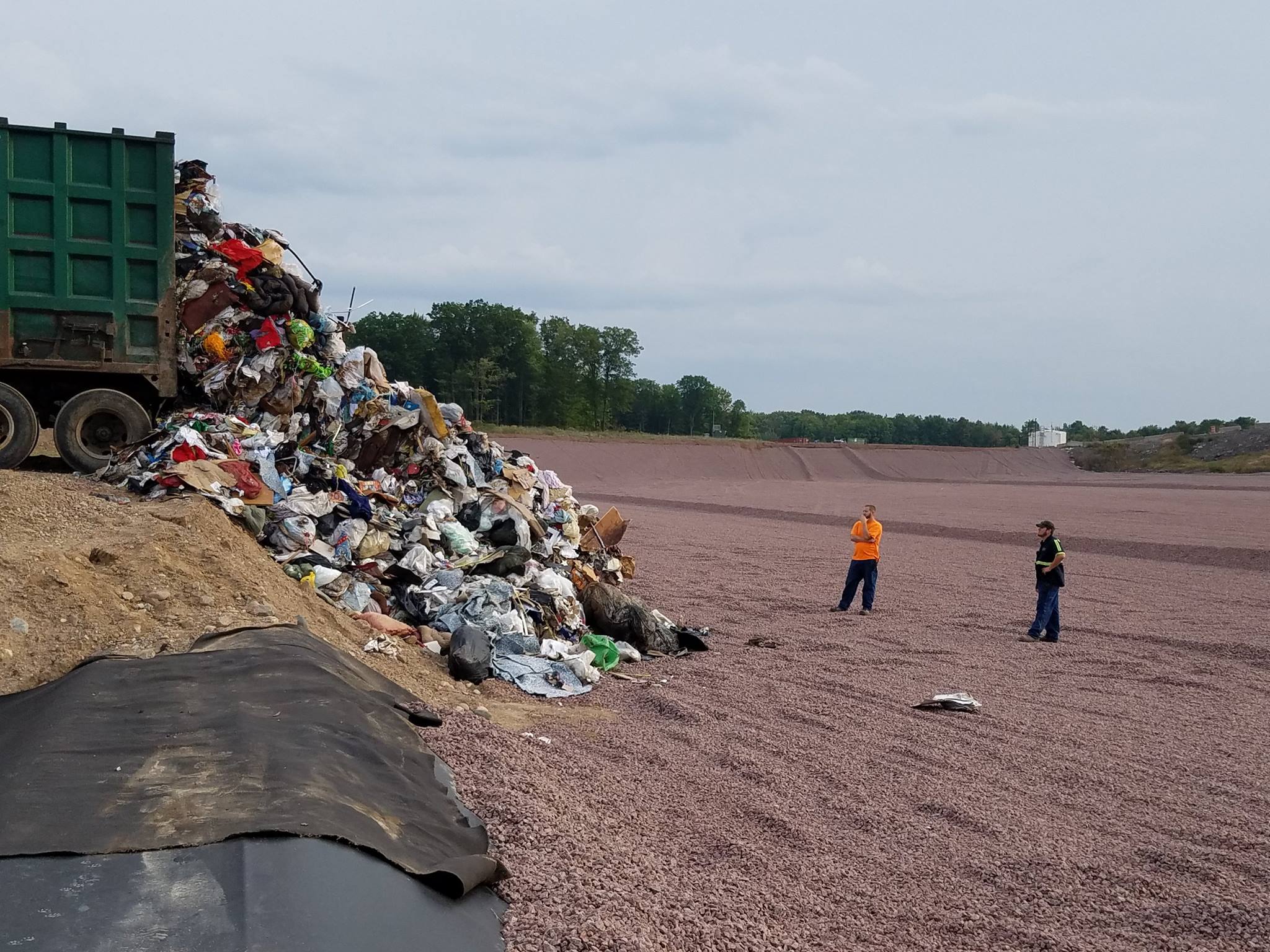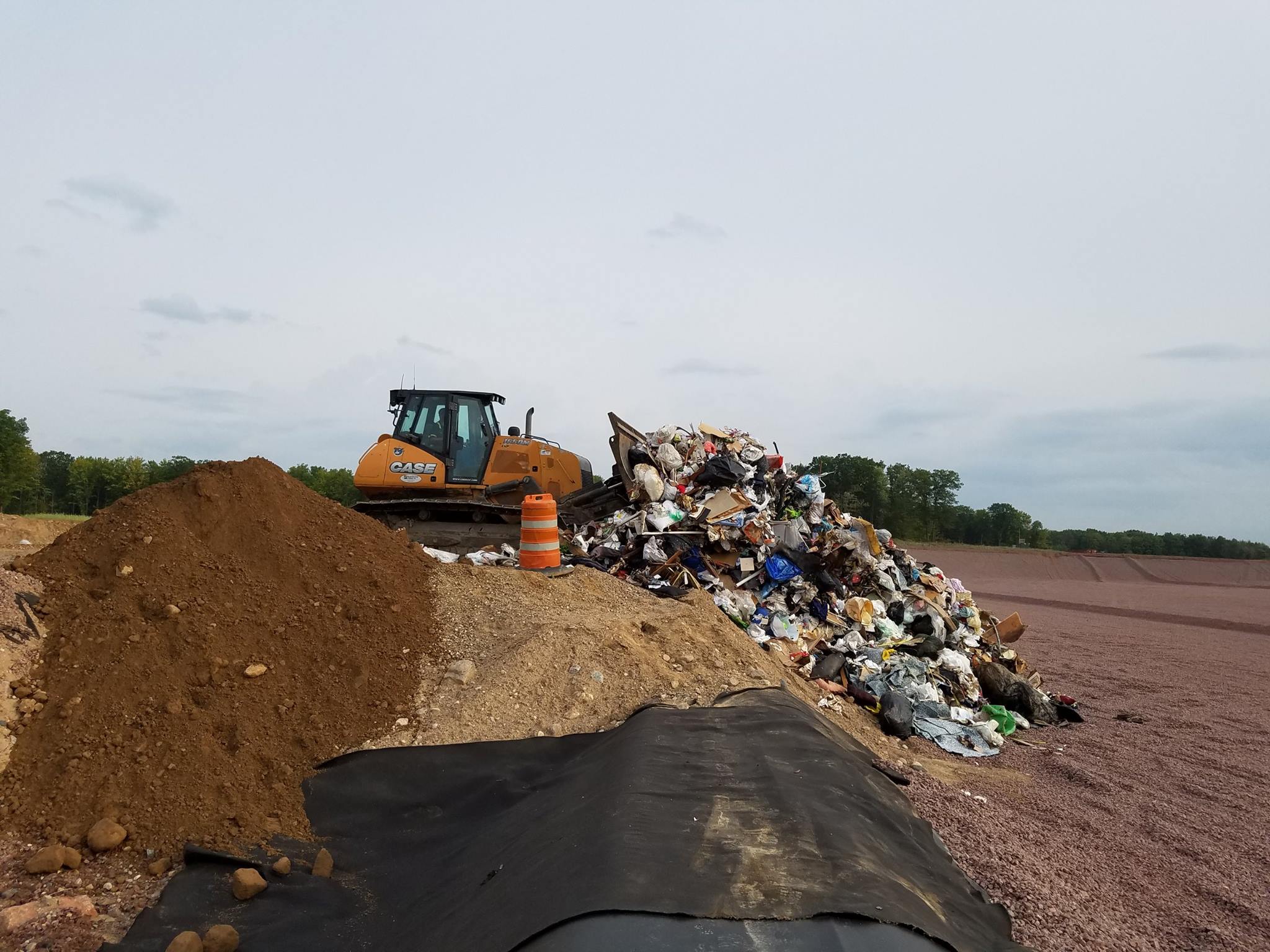Area A is approximately 27 acres in size and 70 feet in height t. It was developed in four phases. It took 13 years to fill, reaching its capacity in November, 1993. It contains about 1.5 million tons or 2.2 million cubic yards of waste. The refuse disposal areas for Area A have a five foot thick liner consisting of 4 feet of clay and one foot of sand for leachate drainage. Area A was capped with a 1-foot grading layer, 2 feet of clay, and 6" of topsoil.
Area B is the active landfill at the facility. It is approximately 311.5 acres with an estimated capacity of 2.4 million tons or 3.35 million cubic yards of space. It has a remaining expected life of 4 to 6 years (around 2023-2025) depending on the materials that goes to it. Different and stricter regulations were used for Area B construction. A Composite Liner consisting of a 4 foot clay liner, a 60 millimeter thick membrane liner, a rock drainage layer and a more expansive piping system for leachate collection was installed.
When the cell is closed it will require a 5-foot cap. This will consist of a 1 foot grading layer, 1 foot of sand for the gas collection system, 2 feet of clay, a 40 millimeter thick plastic membrane cover, a 6" grading layer, and 6" of topsoil.
Each landfill contains a piping system in which the leachate is collected and stored in underground tanks. The leachate is then pumped from the tanks and transported to a local facility for treatment and disposal. More than 100 million gallons have been removed from the two sites. Leachate is tested and analyzed. Water from monitoring wells located around the active and closed sites are analyzed semi-annually for indication of any problem that could exist.
One of the by-products of waste decomposition is landfill gas, primarily methane and carbon dioxide. These gases build up in a landfill and tend to escape wherever and whenever they can. Landfills are required to manage these gases. In July 1989, a landfill gas extraction and flaring system went on line. This $1,000,000 facility was one of the first in the State of Wisconsin. Vertical and horizontal pipes are located in the disposal area to collect gas produced. These pipes are connected to the gas recovery building, which is connected to a flare and to the Refuse Derived Fuel plant to run dryers and heat the plant. The gas flare, measuring 12 feet across and 30 feet high, is used to burn off the excess gas. Temperatures of 1100 - 1600 degrees can be reached in this process and it has destruction efficiency greater than 99%.
State certified operators are on the site at all times that waste is delivered for disposal. The operators observe each load that is placed in the site. Unacceptable materials, such as appliances and electronics, are removed and stored for eventual recycling. Waste is compacted using specialized equipment to densities that exceed 1,400 pounds per cubic yard. The compacted waste is covered daily to minimize odors and blowing material. A common daily cover used at the Marathon County Landfill is bottom ash from the Weston Power Plant.
Marathon County Solid Waste collaborated with the Health Department in 1997 to start collecting household hazardous waste for proper disposal. This effort was the next step in an evolution of hazardous waste management that started throughout the county with the popular Clean Sweep programs. In 2010 the collection was moved to the Solid Waste Department location (172900 Hwy 29) in 2010 and currently operates 5 days a week. It is now known as the Hazardous Household Materials Collection Program. Individuals needing hazardous waste service must CALL IN ADVANCE to make an appointment. This ensures that trained staff is available to assist customers and provide for the safe management of the materials. There is also a “Choose to Reuse” area of the facility where residents are welcomed to leave partial containers of still-good household chemicals for others to use and to take those that fit their needs.
The Marathon County Solid Waste Department co-sponsored the county's first computer recycling event with Industrial Recyclers of WI and Marathon County's Health Department. Over 19.5 tons were collected and sent to Cascade Asset Management in Madison for reuse and recycling in 2000.
Since then ten annual drives have been co-sponsored by Marathon County Solid Waste and Health Departments, Industrial Recyclers of WI, MC Hazardous Waste Corporation and 5R Recyclers. Over 580,000 pounds of electronics have been recycled. The MCSWD now accepts appliances and electronics for recycling at all times the facility is open (fees may apply).
For over twenty years the department has participated in a group purchase Home Compost Bin promotion and sales event. During that time over 1,500 bins have been sold in Marathon County and over 15,000 collectively.
In 2000, the Ringle Glacial Bluebird Trail was established on the facility's property and became part of the effort to create a continuous trail across the US. The trail has 51 bluebird houses, 12 of which were built and donated by students from Horace Mann Middle School.
Wetland protection and an established trail system offer residents many recreational opportunities.








